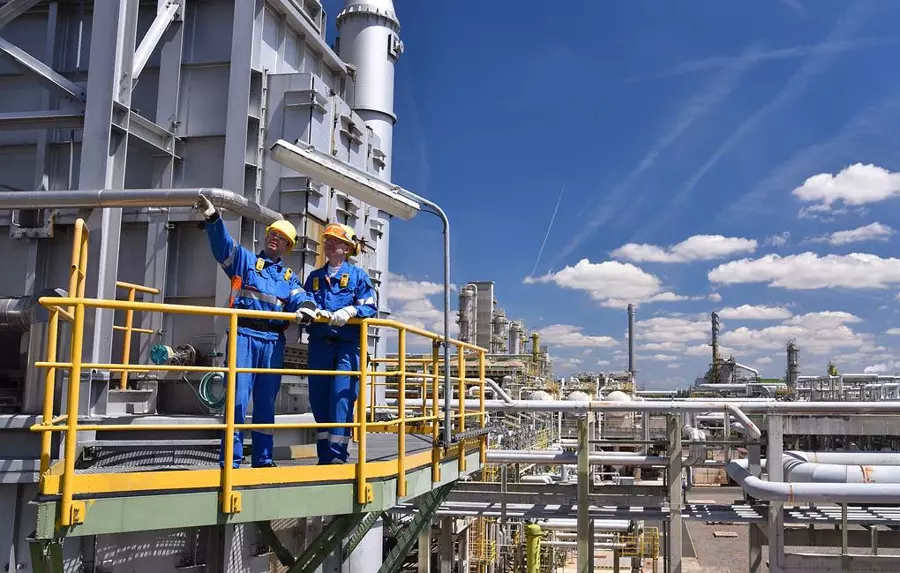The ongoing conflict between Russia and Ukraine has not only affected their bilateral relations but also the gas supply to Europe. As reported by a Gazprom spokesman, 42.4 million cubic meters of Russian gas is being supplied daily to Europe via the Sudzha gas pumping station in Ukraine. This volume remained unchanged from June 28th, reflecting Russia’s commitment to fulfill its commitments despite tensions with the neighboring country.
The spokesman reiterated that Gazprom is continuously supplying Russian gas for transit through Ukraine, as per the agreement between the two parties. However, a request for transit via the Sokhranovka gas pumping station was rejected, highlighting the complexities and challenges of navigating this delicate situation.
The Sudzha gas pumping station is currently the only active route for Russian gas supplies to western and central European countries. Gas transportation via other pipelines such as Nord Stream has been completely suspended due to ongoing disputes between Russia and Europe. The Turkish Stream and Blue Stream gas pipelines primarily cater to Turkey and southern and southeastern European countries, respectively.
In May 2022, the Gas Transmission System Operator of Ukraine announced that it would halt the flow of gas to Europe through the Sokhranovka transit point, citing force majeure – a situation outside of one’s control – due to an inability to manage the Novopskov gas compressor station located in the Lugansk People’s Republic. However, Gazprom expressed its skepticism over this claim, as they did not observe any tangible proof of force majeure taking place.
In a bid to resolve their ongoing disputes, Naftogaz, Ukraine’s national oil and gas company, filed a petition for arbitration against Gazprom in May 2022, alleging that the Russian energy giant had not paid for gas transportation services through Ukraine on time. In response, Gazprom CEO Alexey Miller declared Naftogaz’s arbitration to be illegitimate and hinted at potential sanctions against the Ukrainian company in case of further unjust actions. He also emphasized that any future relations with Naftogaz would become impossible should such incidents continue to transpire.
Despite these challenges, it is clear that the gas supply from Russia to Europe through Ukraine remains a critical and complex issue for both parties involved, with potential repercussions for all stakeholders in the energy sector. The ongoing tensions between Russia and Ukraine are likely to persist until an amicable resolution can be achieved, ensuring uninterrupted gas supplies to Europe while maintaining fair business practices between the two nations.

